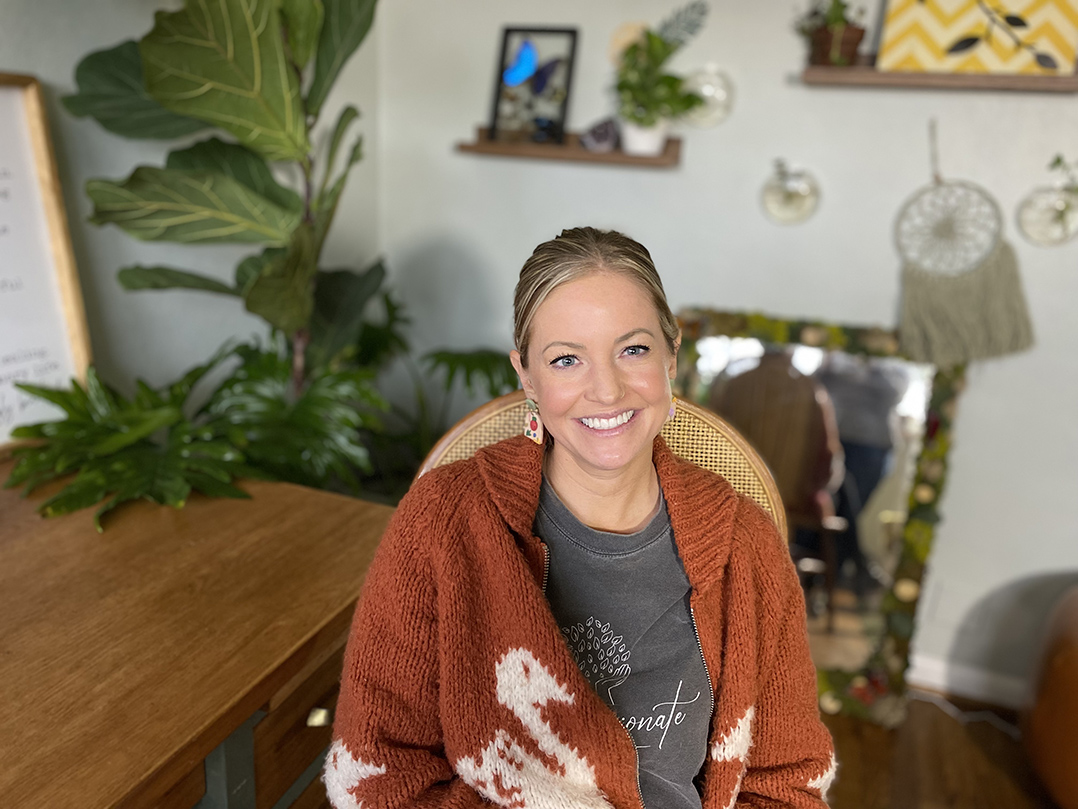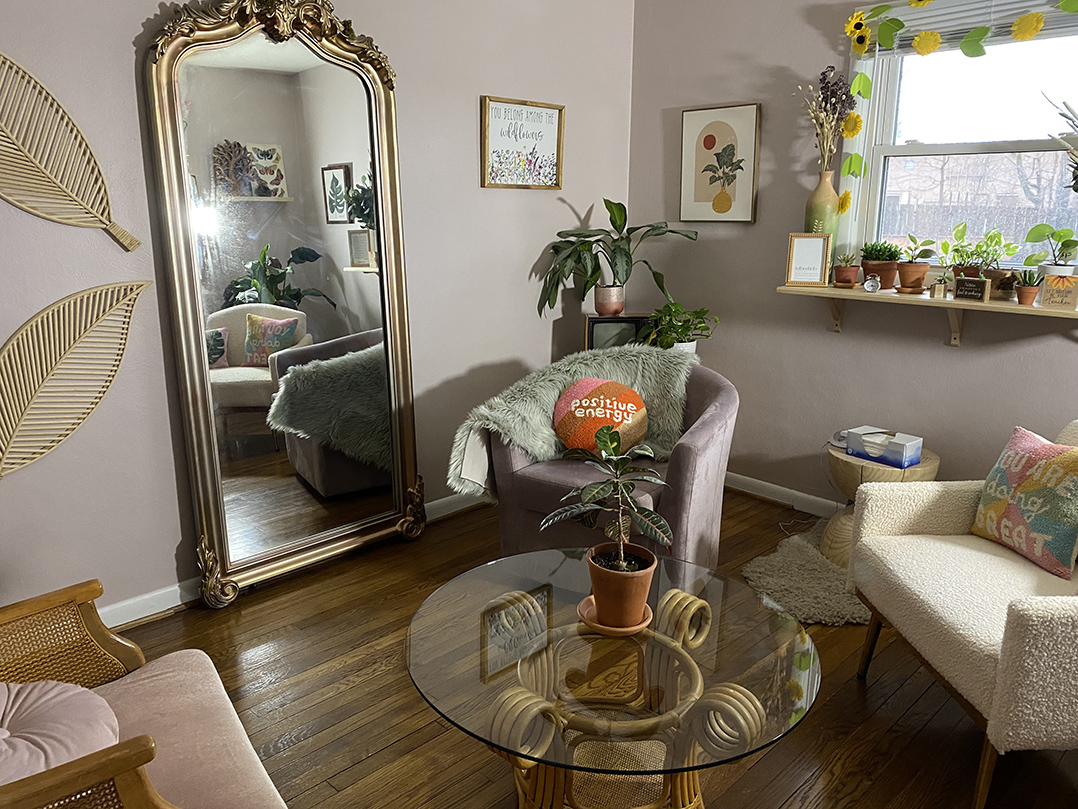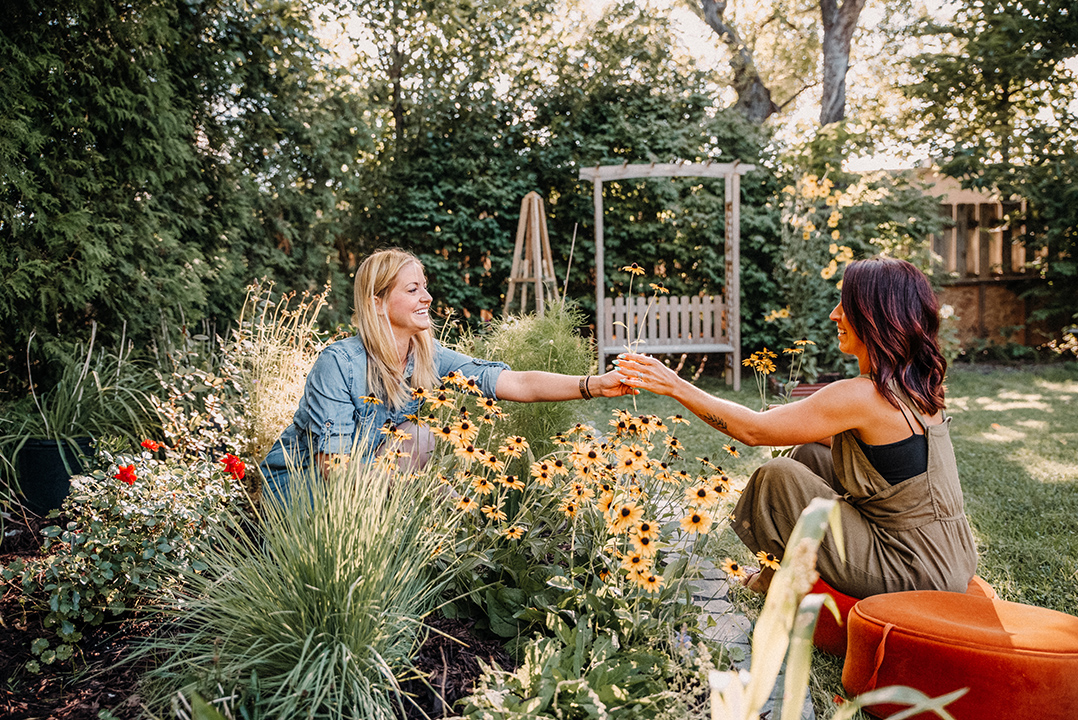After experiencing a traumatic event in 2015, Noblesville resident Mary Ridley said gardening and being around plants helped her cope. Her love of nature and animals led her to create a therapy practice that incorporates nature in mental health care.
Ridley created Compassionate Roots, now at 154 Carey Dr. in Noblesville, in August 2021. Initially, Ridley – a licensed clinical social worker– met clients virtually before buying the house on Carey Drive in October 2022 to operate the practice. She employs nine clinicians.
“We, as humans, gravitate towards greenspaces,” Ridley said. “We gravitate towards nature. If you see a puppy walk by or even an older dog, people light up, and I started thinking that there had to be a way to integrate mental health care and then nature and animals and planting and gardening.”
Ridley defines ecotherapy as “utilizing nature, the planet, natural resources within mental health treatment to improve outcomes” and getting people back to having a relationship with the planet.

At Compassionate Roots, not every clinician specializes in ecotherapy, and clients aren’t turned away if they aren’t interested in engaging in ecotherapy. Ridley stated that a certification is not required for mental health professionals to practice ecotherapy. She said she applies the principles of ecotherapy alongside evidence-based practices.
For clients interested in ecotherapy, Ridley said she may ask what their relationship with nature is and determine a peaceful place the client gravitates toward. She then would try to figure out the client’s roadblocks to spending more time in that space. She said she might ask what a client’s relationship is with food and grow plants with clients using the plant cycle to address mental health challenges.
“Both of my parents loved nature,” Ridley said. “My mom my whole childhood maintained this beautiful garden. And if I think of my childhood, I think of the smell of grass, like my dad would cut the grass. My mom would garden. We would always be outside, and vacations were hiking and vacations were mountains and everything was nature.”
At a young age, Ridley developed a love for animals. She sponsored a gorilla at the Lincoln Park Zoo in Chicago for her birthday. She also would foster dogs and directed an animal rescue for approximately 2 1/2 years.
After experiencing her own traumatic event in 2015, Ridley said when she was bothered or agitated, she would pull weeds and plant a flower. Those activities made her feel calmer and restored her physical energy.
Ridley, who received therapy from 2015 to 2018, said when she was in a doctor’s office, she simply felt like a patient. By contrast, Compassionate Roots’ office is a house filled with green plants, moss mirrors, seasonal depression lamps and has bird sounds playing in the background.
“The house is kind of designed to make you feel like you’re in a greenspace,” Ridley said.
Brónagh Palkin, a licensed social worker clinician and director of operations for Compassionate Roots, met Ridley when they worked together at a different job. She said she joined the team because she believes in Ridley’s vision of providing a safe space for clients.
“Oftentimes, you’ll hear our clients say, ‘The only thing that helps me calm down is when I go outside and I take a walk or when I go into my garden and I’m planting seeds,’” Palkin said.
Compassionate Roots doesn’t have set hours for operation. Clinicians create their own schedules. Some clinicians see clients as late as 8 p.m. or weekends.
Compassionate Roots is hosting an event Feb. 17 with Taffy’s Touch Senior Dog Rescue. For more, visit compassionateroots.com.

Positive effects of nature
According to research featured by the American Psychological Association:
- Exposure to natural environments improves working memory, cognitive flexibility and attentional control.
- “Contact with nature is associated with increases in happiness, subjective well-being, positive affect, positive social interactions, a sense of meaning and purpose in life and decreases in mental distress.”
- “People who spent at least two recreational hours in nature during the previous week reported significantly greater health and well-being.”
- “People who feel more connected to nature have greater eudaimonic well-being, a type of contentment beyond feeling good and including having meaningful purpose in life.”
- People with low social connectedness and high levels of nearby nature reported high levels of wellbeing.





